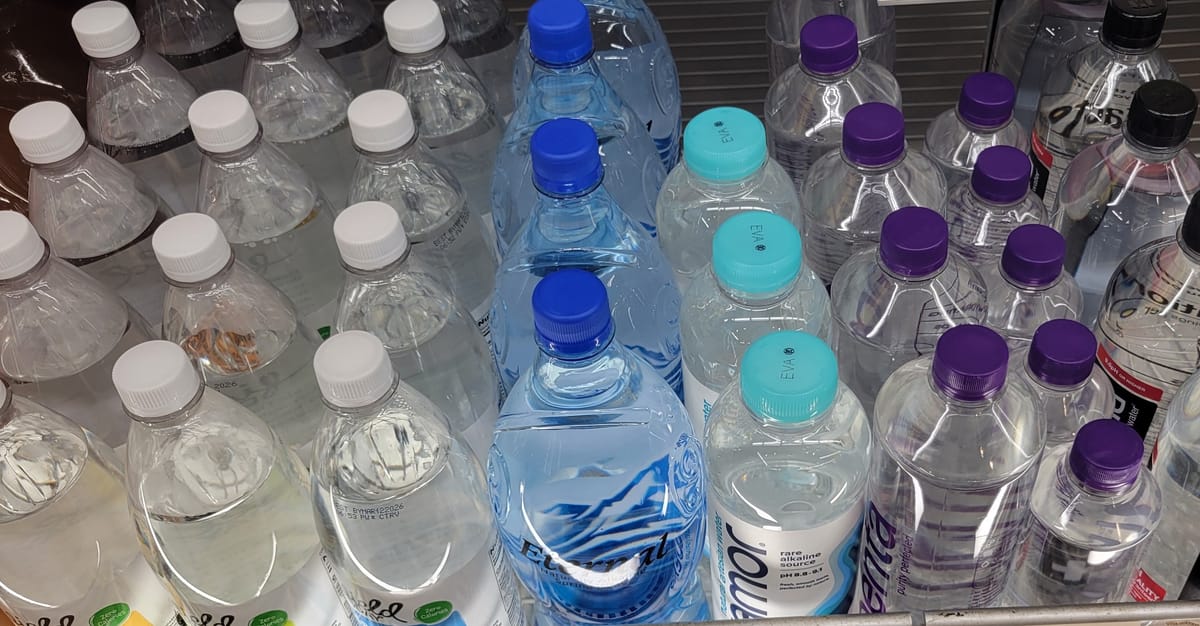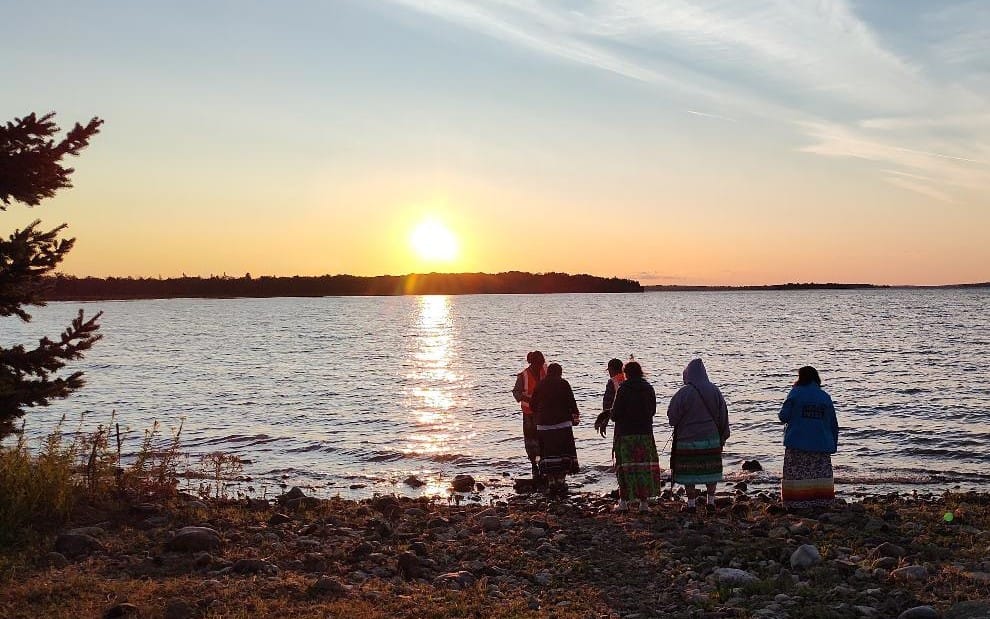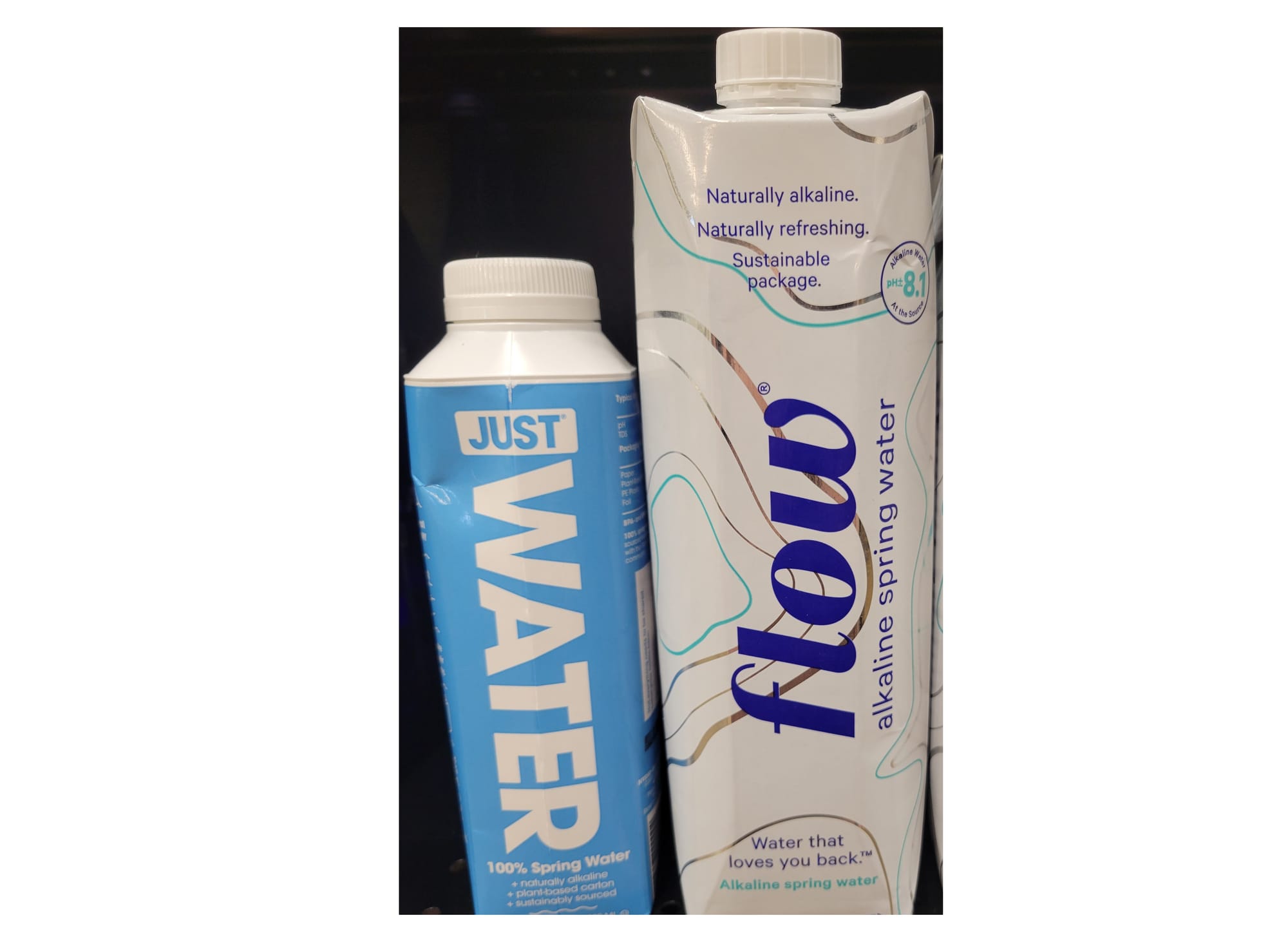On My Plate: Water
"Around 22 million pounds of plastic end up in the Great Lakes annually, according to Rochester Institute of Technology scientists Matthew Hoffman and Eric Hittinger."

Walking along a Great Lake is a pleasure many of us have enjoyed. Oxford resident Roxanne Ornelas has not merely walked along a Great Lake – she has gone all the way around more than one.
Dr. Ornelas has circumnavigated Lake Superior and Lake Huron as a participant with a group of Indigenous Water Protectors who pray and express gratitude for the water as our life-giving force. Dr. Ornelas will discuss her environmental justice activism with the Indigenous Water Protectors on Saturday, Aug. 9, at 1 p.m. at MOON Co-op, in a talk titled “We Walk for Water.”
Around 22 million pounds of plastic end up in the Great Lakes annually, according to Rochester Institute of Technology scientists Matthew Hoffman and Eric Hittinger. However, the plastic waste is not distributed uniformly through the Great Lakes. More than half of it is in Lake Michigan, emanating primarily from the cities of Chicago and Milwaukee, whereas virtually none is in Lake Superior.
Americans consume around 50 billion plastic water bottles annually, many of which end up in the Great Lakes. I counted 24 brands of the 500-700 ml bottled still water at Kroger, not including sparkling and flavored varieties, or larger sizes. I’m sure I missed some.

Drinking water is essential for our health, especially during this unusually hot and humid summer, and we know it is far better to drink water than cola. But consuming water from single-use plastic bottles is challenging. Only 23% of these bottles are recycled, according to Project Clean Water, while the rest end up either in landfills or discarded, such as those ending up in the Great Lakes. A reusable water bottle is a worthy alternative, but often less convenient than grabbing a plastic water bottle in a shop.
One of the three purposes of MOON Co-op, according to its Articles of Incorporation, is “to promote the use and consumption of natural, organic and environmentally friendly products.” Yet six of the eight brands of bottled water it sells are in plastic. However, two of the eight – Just Water and Flow Water – are in cartons rather than plastic.
Just Water and Flow Water provide containers made with paperboard from recycled materials sourced originally from tree farms certified as sustainable by Forest Stewardship Council. They both use plant-based caps. By constructing box-shaped containers, Just Water states it can pack 13 times more cartons into a delivery truck than is possible with the cylindrical shape used for plastic bottles.

Just Water was founded in 2015 by then-17-year-old Jaden Smith, son of Hollywood superstars Will and Jada Pinkett Smith. The company bottles spring water obtained in Glens Falls, New York.
Just Water has played a significant role in helping Flint, Michigan, cope with its contaminated drinking water. In addition to providing 5 million free bottles of water, the company installed a temporary water filtration system from which Flint residents could fill containers.
Flow Water is a Canadian company, founded in 2015 by Nicholas Reichenbach and Tammy Eckenswiller. Their commitment to bottling water without plastic is said to have originated from outrage at a mountain of plastic bottles discarded at Burning Man. The water comes from artesian springs near South Bruce, Ontario, east of Lake Huron.
Water enters nearly every human activity. As the Indigenous Water Protectors website states, “as we heal the water, we heal all of life.”
James Rubenstein is president of the Board of Directors for the Oxford Free Press and professor emeritus of geography at Miami University.




